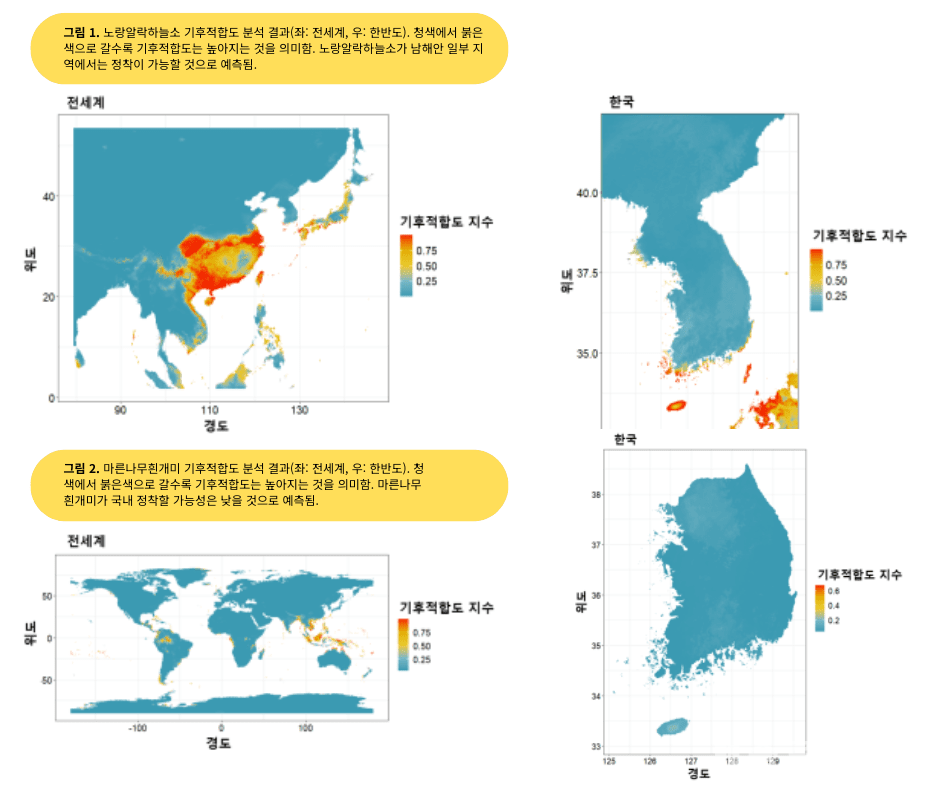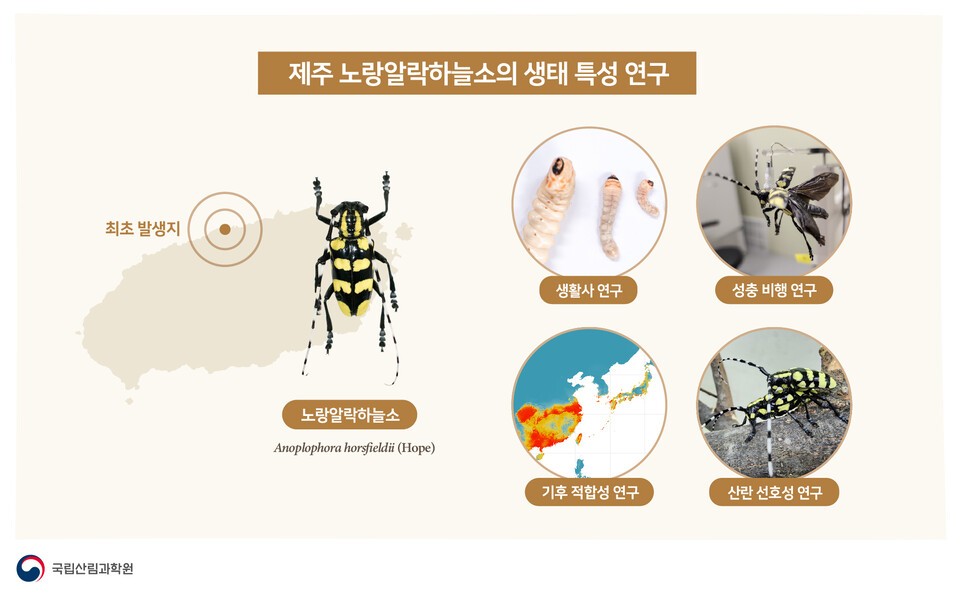The Korea Forest Service’s National Institute of Forest Science (Director: Kim Yong-kwan) announced on the 17th that they are conducting climate suitability evaluation research using machine learning to predict and respond quickly to the domestic spread of invasive alien pests in advance.
Initially, the range of distribution for invasive alien pests is limited upon introduction, but as they adapt to the domestic climate and spread, control becomes difficult, necessitating continuous management. Climate change, in particular, affects pest distribution expansion and increases in the number of generations, and the possibility of new introductions of subtropical alien pests is also increasing.

Accordingly, the National Institute of Forest Science carried out a machine learning analysis based on the ecological information and climate data of over 200 species of pests, including termites and the yellow-spotted longicorn beetle, which have entered the country. The analysis predicted that the yellow-spotted longicorn beetle could possibly settle in some areas of the southern coast, while termites have a low likelihood of settling domestically.
The climate suitability derived from this research is expected to be used in quantitatively analyzing the common characteristics of pests that have been reported on a large scale and in predicting in advance the possibility of settlement by alien pests that have not yet been introduced.

The National Institute of Forest Science plans to integrate artificial intelligence (AI) technology into the analysis model to further enhance prediction accuracy and advance the systematic response to alien pests.
Nam Young-woo, a researcher at the Pest Research Division of the National Institute of Forest Science, commented, “Forest pests not only impact ecosystems but also affect the everyday lives of people,” adding, “We will contribute to the safety of the public with a scientific response system incorporating advanced technology.”